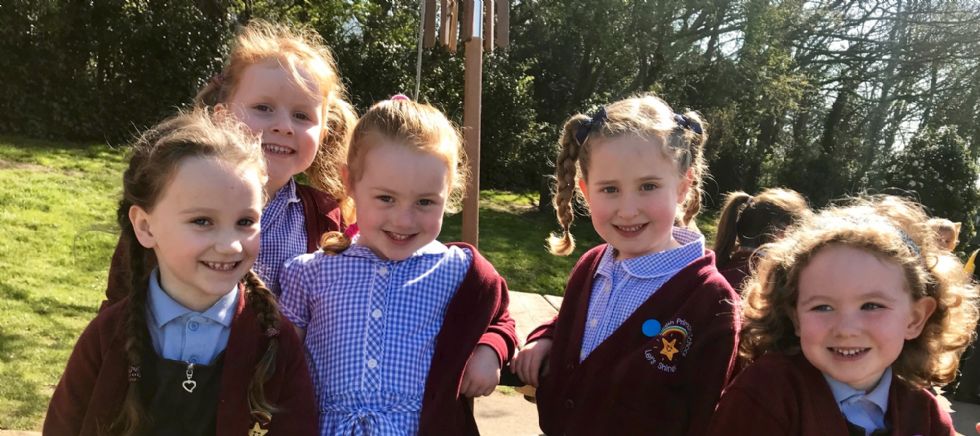Supporting Emotional Wellbeing
At Snaith Primary School the emotional wellbeing of children is of the greatest importance. We understand that at different times lots of children struggle with their emotions. Regardless of their age, children and young people can find the pressures of modern life difficult. Some may react immediately to events, while others may show signs of difficulty later on. How a child or young person reacts can vary according to their age, how they understand information and communicate, their previous experiences, and how they typically cope with stress. Adverse reactions may include thinking about their health or that of family and friends, fear, avoidance, problems sleeping, or physical symptoms such as stomach ache.
If you have an urgent concern - CAMHS (Child and adolescent mental health service). This service is for young people (under 18) who are experiencing and struggling to cope with acute emotional distress leading to a high level of mental health risk. CAMHS Crisis Team 24 hour service: 01482 301701 – option 2. If there is an immediate threat to life call 999.
In School Suppport
It may be appropriate for your child to access emotional support within school, this can be done through the staff that your child already knows and trusts as they are more likely to feel comfortable with them. If further support is required in school this may be provided by our ELSA - Mrs Taylor - Please see our ELSA page for more information about this.
Professional Help
If, despite your best efforts, your child is finding it hard to manage their emotions, it’s a good idea to get some professional help. School will work with families and professionals to help identify the right support. This may involve completing an Early Help Assessment - a single holistic assessment for the whole family that enables practitioners to assess needs at an early stage. The assessment is suitable for use with any child/young person (from minus 9 months - 19/24 years) that need support to meet their additional unmet needs.
You can also speak to your GP – you can either go with your child, or see the doctor alone initially to discuss your concerns. They may adopt a ‘wait and watch’ approach to see if your child’s difficulties get better on their own, or refer them to youth counselling services or Child and Adolescent Mental Health Services (CAMHS), where they can access specialist support.
As a school, we work with the local authority and external agencies to access advice and support for our families. Useful links and advice to help adults with caring responsibilities look after the mental health and wellbeing of children and young people, including those with additional needs and disabilities, will be added here.
Look After Your Own Mental Health
We know that as parents and carers, you will all be thinking about the children or young people in your care - remember it is important to take care of your own mental health and wellbeing too!. Children and young people can react, to what they see from the adults around them. When adults deal with a situation calmly and confidently, they are able to provide the best support for children and young people. Parents and carers can be more supportive to others around them, especially children, when they are better prepared. There are lots of great free apps you can use to guide you through breathing techniques and meditation that can help ease anxiety and clear your mind of anxious thoughts. Mind recommend the use of the 'Headspace' app.
The sites below give advice and actions to help you take care of your mental health and wellbeing:
- government guidance on how to look after your mental health and wellbeing
- Every Mind Matters
- East riding mental health advice and guidance
Looking After Children's Mental Health
Every mind matters suggests these top tips for helping children to cope during difficult times:
1. Listen to what your child says and how they're feeling
Children and young people may respond to stress in different ways. They may be more emotional (upset, anxious or angry) or behave differently (clingy, withdrawn or wet the bed). They may also have physical symptoms, like stomach ache, and problems sleeping. Children and young people can feel less anxious if they are able to express themselves in a safe and supportive environment. Stay calm – kids often take their emotional cues from the adults in their lives, so how you respond is important.
Listen to and acknowledge their concerns, speak kindly to them and answer any questions they have honestly. Give them extra love and attention if they need it.
2. Be clear about what's happening
Children and young people want to feel that those who care for them can keep them safe. Do this by talking openly and giving honest answers to questions they have. Use reliable sources of information and explain things in words they understand.
If you cannot answer all their questions or stop them from worrying, focus on listening to their feelings. This will help them feel supported.
3. Limit negative news and conversation
Children and young people, like adults, can become more worried by too much news in the media and online. But blocking all news rarely helps, as children are likely to find things out from their friends or online. Turning off the TV or closing websites when children come into the room may increase their interest, and their imagination, too much. Try to stick to getting a news update twice a day – it's enough to keep you informed but not overwhelmed. You should talk to them about what's going on and ask them what they have heard.
4. Keep close and regular contact
Try to keep your children close to you or those who care for them, as they will need that closer contact during difficult times. If you are not living with your children or must go away, for work or to hospital, keep regular contact by phone or video calls. If the children are part of a family that is separated, it's important for them to be supported in their contact with parents and other family members – even when the adults do not always get on. Help them understand any arrangements that have been or are being made for them. Use simple terms they understand so it's clear why these things are happening.
5. Create routines
Routines make children and young people feel safer, so think about how to develop routines that are interesting and fun. Make a plan for the day or week that includes time for learning, playing and relaxing. You could arrange a virtual play date with friends or visit an online museum or gallery.
6. Get active
It's important to try to build activity into kids' daily routine. Plan time outside, but only if you can do it safely. There are lots of indoor games and activities for kids to play on the Change4Life website.
7. Eat healthily and avoid too many treats
We know it can be tempting to give sweets or chocolate to cheer your children up. But too many treats are not good for their health.
Change4Life has loads of healthier snack ideas – and making them together is also a great way to keep the kids busy.
8. Children and young people need good sleep
Sleep is so important for mental and physical health for everyone. Children and young people need good-quality sleep, so it's important to keep to existing bedtime routines. Try to avoid screen time before bed, this will help children's minds begin to slow down and prepare for a restful night.
9. Look after your own mental health and get support
Remember to take care of your own mental health and wellbeing! You will give the best support to those you love if you can deal with things calmly and confidently.
For further advice on guidance in supporting children's emotional wellbeing take a look at some of these useful links:
If your child is struggling to cope with their emotions you can contact your GP or get in touch with school for further advice and support at:
01405 860452
snaith.senco@eastriding.gov.uk








